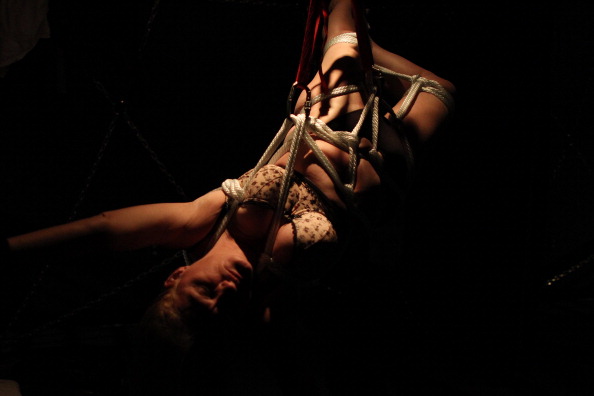Kinks aside, the porn block was a puritanical attack on sexual expression

Farewell to the porn laws, one of the worst thought-through pieces of legislation ever to have been at risk of becoming law.
First cooked up in 2015 by David Cameron’s team, the “porn blocker” plan which would supposedly have prevented children from stumbling across adult content on the internet has faced repeated delays, and on Wednesday the government announced that it was scrapping the idea entirely. And good riddance.
The motivation for this disastrous endeavour can be neatly summed up by a tweet from Jeremy Hunt during his campaign for Tory leader: “I think we should protect kids from porn. Mine are 4, 7 and 9 and I do NOT want them looking at it!”.
Apparently, expecting parents to install their own internet filters and monitor their kids’ online behaviour was an unreasonable request.
And so a plan was hatched: make porn websites install age verification systems to prevent under-18s in the UK from accessing adult content.
The issues were myriad and obvious. The delusion that tech-savvy teenagers seeking erotic content would give up, rather than using a VPN or finding other ways around the ban, was ludicrously naive. Adult content is also widely available on social media sites which wouldn’t be affected, making the whole thing pointless.
More seriously, adults looking to access perfectly legal porn would have had to prove their age. Whichever system was used, a huge amount of highly personal data (real names, credit card numbers, passport details) would suddenly be linked to websites hosting sensitive material. The potential for data breaches, privacy violations, and even blackmail and extortion would be huge.
The fact that an email to journalists in April on this very topic from the Department for Digital, Culture, Media and Sport revealed personal email addresses and broke UK data regulations shows that the government is hardly to be trusted with such information.
All of this should have been readily apparent to anyone with even a vague knowledge of how the internet works.
But besides the logistical hurdles, a far bigger problem was that no one (at least, no one high up enough to be listened to) at any point over the past four years thought to question whether sending the government into our bedrooms to police the behaviour of adults was a good way to protect children from inappropriate material.
Anxious parents campaigning for the government to step in argued – rightly – that the sex depicted in porn is usually unrealistic and may well be disturbing to young viewers. But whatever they may wish, it is a fact of life in modern society.
Whether from designated porn sites, social media, texted images, or magazines found in public lavatories, young people in this country can expect to come into contact with adult content at some point in their adolescence.
Given this reality, the obvious solution is to make sure that they are armed with the tools and information to properly process such material when they do.
Alas, they currently do not. In fact, not only does school sex education not equip young people to engage critically with the sensationised performance shown in porn, but teenagers are actually turning to this content for the lessons they are not learning elsewhere.
A report by the House of Commons Health and Social Care Committee in June found that: “young people are not being educated in a way that helps them make intelligent choices… young people are getting their education through pornography, which has troubling effects on sexual behaviours and health”.
Troubling, yes, especially given the distorted depiction of sex in pornography. But if young people are turning to porn to fill in the gaps left by woeful sex education, the problem is not the existence of porn, but the absence of education.
It is disturbing that successive governments’ answer to teenagers encountering porn was not to address the education deficit but to attempt to smother them in bubble wrap by shaming, restricting, and potentially endangering adults.
It shows not only a complete misunderstanding of how the internet works, but a defensive, sexphobic attitude that could be far more damaging to young people and their perceptions of sex than pornography ever could.
Opponents of this policy would be forgiven for suspecting that it was therefore not really about protecting children, who would be better served by parents able to install an age filter on the home wifi network and willing to discuss challenging topics when they arose, nor about sheltering teenagers from damaging misconceptions about sex, which should be combatted with education rather than prohibition.
Rather, it looks like an attempt to wish out of existence a product that some in society find distasteful, and if that doesn’t work, punish adults who dare to access it, using the knee-jerk fears of hyper-concerned parents as an excuse.
The fact that this has now been dropped because of technical kinks was a lucky escape. But such puritanical and invasive state overreach should have been condemned in principle from the start from anyone who believes in healthy, judgement-free sexual expression.
And anyone who doesn’t has far bigger problems than porn.
Main image credit: Getty